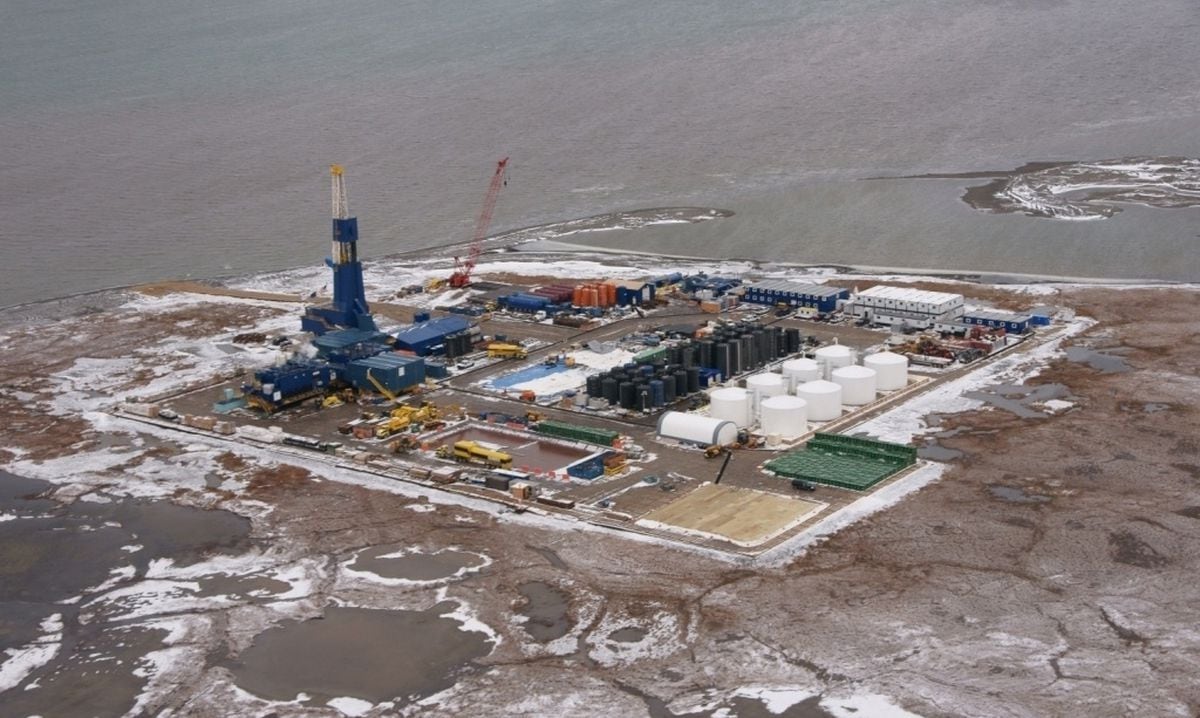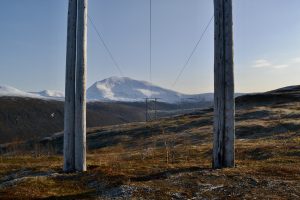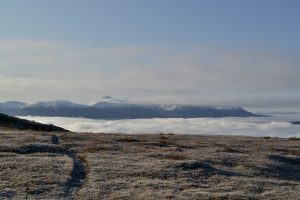Permafrost Thaw is an Existential Crisis For Alaskan North Slope Oil Production
Permafrost covers nearly ¼ of the land mass in the northern hemisphere, and its existence is essential to a continuation of indigenous ways of life as well as the operation of heavy industry in the region. (van Huissteden 2020a)
Furthermore, nowhere in the world is Climate Change moving faster than in the Arctic, and models have shown that by 2050, 3.6 million people, or about one third of the current population that lives in the permafrost area, will likely be affected by this thawing. (Hjort et al. 2018)

Oil was discovered on the north slope of Alaska along the Beaufort sea in 1968, and a vast infrastructure system was quickly put in place. (Raynolds et al. 2014) These massive refineries, and the supporting network of pipelines and roads now face an uncertain future. There is often no easily available bedrock for these buildings and structures to anchor to, so they are built upon the frozen ground and permafrost (Raynolds et al. 2014). As the arctic warms, the industry faces an uphill battle maintaining their infrastructure.
While the oil fields themselves have not seen serious melting yet, highways that support the northern areas of Alaska are facing an uphill battle. In one section of the Dalton highway, sinkholes have begun to open along the road. These sinkholes are appearing only 50 miles south of Prudhoe Bay, the largest oil installation in the United States. Gravel has been used to fill this subsidence, but so far in 2020, 30 truckloads of fill have been needed for one area, and the melting ice wedge (a section of ground which is primarily ice) has the potential to be anywhere from 10 to 90 feet deep. (Bradner 2021)
“ConocoPhillips has not yet seen evidence of permafrost thaw that can be contributed to climate change” – Natalie Lowman, ConocoPhillips Spokeswomen
The current policy of the oil companies is to deny the effects of climate change on permafrost. This policy creates a dangerous precedent in the arctic where the oil industry is reactionary to climate change effects and is not planning for the future issues created by climate change.

Policy Recommendations:
Stronger Oil Spill response that recognizes the realities of climate change
It will be necessary to require higher insurance policies and comprehensive plans to respond to spills in the arctic as climate change continue to progress. This will ensure that companies account for the true cost of operating in a warming arctic, and are financially and technically prepared for future challenges brought by melting permafrost. This will establish a system where companies are ready to accept the costs related to a spill as well as the final drawdown costs of old wells.
Support Further Research on Permafrost Hazards and Require a Permafrost Impact Report for New and Existing Buildings.
Further study and tracking of permafrost trends will continue to be essential moving forward. There are a number of universities already investigating these changes, but more funding is always needed. As well, a special emphasis should be placed on understanding how to better map permafrost so each type of permafrost can be modeled and its melt stability can be better understood.
A permafrost impact and response report for new and current buildings should also be developed. This report should investigate what types of permafrost the building is built on, what thaw mitigation steps are currently being taken, and what preparations are being made for future melting.
[ensemblevideo version=”5.6.0″ content_type=”video” id=”46e7998e-3a33-477b-997a-798597f671ab” width=”848″ height=”480″ displaytitle=”true” autoplay=”false” showcaptions=”false” hidecontrols=”true” displaysharing=”false” displaycaptionsearch=”true” displayattachments=”true” audiopreviewimage=”true” isaudio=”false” displaylinks=”true” displaymetadata=”false” displaydateproduced=”true” displayembedcode=”false” displaydownloadicon=”false” displayviewersreport=”false” embedasthumbnail=”false” displayaxdxs=”false” embedtype=”responsive” forceembedtype=”false” name=”Effects of Permafrost Thaw on North Slope Oi”]
